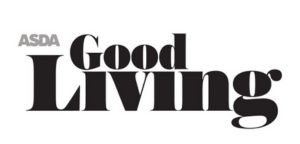This post may contain affiliate links for which I earn a small commission at no extra cost to you. For more info, check out my Disclosure Policy. Thank you for your support!
One thing that used to always trip me up when I was first diagnosed with coeliac disease is working out which sauces are gluten free.
It’s easy to remember the obvious things that contain gluten, like bread, pasta, cakes, pizza – basically anything battered, breadcrumbed or beige!
But I find the most difficult things are the things you don’t think to check.
For example, I’ll happily grill the waiter at a restaurant for hours on their cross contamination processes when ordering a plate of chips.
But then I’ll slather them in tomato ketchup or mayonnaise without even thinking about if it’s gluten free.

Table of Contents
- So which sauces are gluten free?
- Which sauces are usually gluten free?
- Sauces which are *sometimes* gluten free
- Sauces which usually contain gluten
- Are sauces which contain barley gluten free?
- Why is some barley malt vinegar no longer gluten free?
- What about gluten free gravy?
- More gluten free tips and tricks…
- Like this post? Pin it for later!
So which sauces are gluten free?
Finding out which sauces are gluten free is not as simple as just giving you a list.
Sure, I can let you know the sauces which definitely are NOT gluten free, or the sauces which are gluten free 99% of the time.
But then what about the different brands? For example – did you know HP Brown Sauce isn’t gluten free, but the Tesco and Asda cheapo brown sauce IS gluten free?
Then you’ve got mustard – most English mustard contains wheat flour, but did you know a handful of brands are actually gluten free?
And let’s not even get started on the ‘free from’ branded mayonnaise and ketchup – most brands of these are gluten free anyway and you’ll pay three times the price for a free from one.
But don’t worry – before you get super confused, I’m here to help!
I’ve broken this guide to gluten free sauces down to try and help you find out exactly which sauces and condiments are gluten free.
This is based on my experience in the UK – if you’re visiting this site from the US or another country the ingredients of the same brands may be different where you are!
Please note this guide was last updated in January 2021. I will do my best to keep it up-to-date but ALWAYS double check the labels and sometimes brands change their ingredients and they may differ to what is written here.
Which sauces are usually gluten free?
The good news is, there are a lot of sauces and condiments which are gluten free.
As a rule, these sauces are USUALLY gluten free:
- Mayonnaise
- Salad cream
- Dijon Mustard
- Wholegrain Mustard
- Any sauce marked ‘gluten free’ in the free from aisle
- Spirit Vinegar
- Balsamic Vinegar
- Tamari soy sauce (as long as it’s labelled ‘gluten free’)
- Cranberry sauce
- Horseradish
- Most jams, curds and marmalades
- Sriracha chilli sauce

Now, isn’t that a delightfully long list of things you can eat!? We’re off to a good start!
Usually all of the above sauces are free from gluten, but it is always important to check,
Only last week I went to a restaurant where the mayonnaise had a ‘may contain traces of gluten’ warning on it, must to my surprise.
If you have coeliac disease it’s advised to avoid all foods with a ‘may contain’ warning.
So as well as checking the ingredients, make sure you also check for any warnings too.
It’s also important when shopping in the free from aisle to check the sauces there are gluten free.
It can be easy to assume that everything in that aisle is safe to eat, but some of it may be in there because it’s dairy or egg free, but still contains gluten. It’s rare, but it happens.
It’s also worth checking the lists below as sometimes, for example, a vegan mayonnaise will be in the free from aisle and marked ‘gluten free’, when the normal, cheaper variety is gluten free anyway!
So definitely shop around if you want to save your pennies!
Sauces which are *sometimes* gluten free
These sauces are always worth checking – sometimes they will contain gluten but some varieties and brands are gluten free.
I can definitely recommend the Coeliac UK scanner app if you want to check before you buy.
Sauces and condiments which are usually gluten free in the UK are:
- Tomato Ketchup (usually gluten free)
- Some brands of Brown Sauce
- Some varieties of BBQ sauce (some do contain gluten)
- Salad dressings (depends on the ingredients)
- Supermarket own brand Yeast Extract – while Marmite is not gluten free, a lot of the own brand ones are. Double check using the scanner app.
- Relishes and pickles – always double check using the scanner app
- Tartare sauce – some versions have wheat flour in but some are gluten free

When it comes to tomato ketchup, you’ll be pleased to know Heinz ketchup is gluten free!
In fact, at the time of writing, the Coeliac UK scanner app lists 222 varieties which are gluten free, so that is definitely a bonus for all your ketchup fans!
If you like BBQ sauce, you’ll be pleased to know there are quite a few you can eat.
The HP BBQ sauce is gluten free, and there are quite a few BBQ sauce bottles, marinades and jar sauces which are listed in the Coeliac UK app.
With salad dressings, the majority are gluten free but it’s important to double check the ingredients as there are so many different varieties.
One for the Marmite fans out there – the bad news is that Marmite is not gluten free.
However, many of the supermarket own brand Yeast Extracts are gluten free and safe for people with coeliac disease to eat.
And when it comes to relishes and pickles, did you know a lot are gluten free?
Sauces which usually contain gluten
Unfortunately these sauces pretty much always tend to contain gluten, save for a few specifically gluten free ones.
Again, it’s always worth checking, but generally these sauces are NOT coeliac safe:
- HP Brown sauce
- Soy sauce
- English mustard
- Bread sauce (unless it’s a specifically gluten free one!)
- Marmite – the brand Marmite labels its products as not suitable for people with coeliac disease.

HP Brown Sauce does contain gluten, however the Tesco and Asda’s ‘cheap’ brown sauces are completely safe.
Plus there are some free from brown sauces such as Chippa which you can sometimes find in the free from aisle.
Soy sauce is the one which catches a lot of people out – because it’s not a thick sauce, it’s easy to assume it’s fine.
But soy sauce is NOT gluten free – unless it is specifically marked as gluten free, which is usually Tamari instead of standard soy sauce.
I personally think gluten free soy sauce tastes the same, but Asian food connoisseurs might disagree – you’ll have to let me know if you think otherwise!
This does mean a lot of Chinese food is not gluten free either, neither is sushi unless you can get it with a gluten free soy sauce instead.
As discussed above, Marmite is unfortunately not gluten free and is labelled as such, but some of the supermarket yeast extracts are, which are basically the same thing!
Are sauces which contain barley gluten free?
Please note I have updated this section since Coeliac UK updated its guidelines on barley malt and will continue to check for relevant updates (Jan 2021).
Sauces which contain barley are one of the main confusions here, so let me explain.
When you’re diagnosed with coeliac disease, you’re told barley is one of things you cannot eat.
So it’s not surprising so many people are confused that some of these condiments and sauces below are gluten free! And the plot thickens…
Because previously things like Lea and Perrins Worcestershire Sauce and Branston Pickle were previously marked as safe in the Coeliac UK Food and Drink Guide.
But now they are no longer listed as being suitable for people with coeliac disease.
Why is some barley malt vinegar no longer gluten free?
Coeliac UK has recently (Jan 2021) updated its guidelines stating that it will no longer be listing products containing barley malt extract or barley malt vinegar unless they are labelled as gluten free.
This is placing a greater responsibility on the manufacturers to confirm that products contain less than 20ppm of gluten and can be labelled as gluten free.
It means 187 products have been removed from Coeliac UK’s ‘safe’ list – including Branston Pickle, Lea and Perrins and Sarson’s Malt Vinegar.
However, a couple of products which are still listed as safe, and a good gluten free alternative, include:
- Heinz Rich and Tangy Sandwich Pickle
- Blenders Malt Vinegar 10ml sachets
- Heinz Chunky Classic Ploughman’s Pickle
Obviously Coeliac UK is continuing to contact manufacturers and if any of the removed products appear safe again, I will update this guide and let you know!
This is why the Coeliac UK scanner app is so useful – I use it all the time and it’s helped me discover loads of products I didn’t know I could eat.

What about gluten free gravy?
Gluten free gravy is a whole different subject and more-and-more gravies are becoming safe for people with coeliac disease.
I highly recommend checking out my Guide to Gluten Free Gravy and Stock Cubes where I’ve listed all the products which are gluten free.
Of course I will work to keep both these guides up-to-date, so it’s worth bookmarking and checking back.
And please do let me know in the comments if there are any sauces you’re confused about and I’ll do my best to help!

More gluten free tips and tricks…
If you found this post helpful, I have plenty of other coeliac tips for you!
Check out some of these posts and let me know if there’s anything else you’d like me to cover and help with:
- Top tips for saving money on a gluten free diet
- Guide to gluten free gravies and stock cubes
- Commonly asked questions about being gluten free
- What to do after a coeliac disease diagnosis
- What is a coeliac check-up – and do I need one?
Like this post? Pin it for later!

















Despite Coeliac UK saying items with less than 20ppm, I have a reaction to anything containing barley. Lea & Perrins Worcestershire sauce is the worst however, if you have contacts in the USA, their version is the original recipe and does not contain malt vinegar which was substituted when Nestle bought out the UK company
Thanks for the clarification regarding the different vinegars used in the English vs American Lea and Perrin. I do use it regularly, am celiac, and have had no reaction as expected with the US version. .
Waitrose essentials English mustard is gf and not expensive
Command mustard powder is gf as well
Thanks for this – really useful. I wasnt aware of the change re Sarsons Malt vinegar and we have been using it at home! No side effects but it seems it’s no longer safe?!
Loving the blogs they are hilarious
hi i enjoyed skimming from your blogg as well. thank your for your support!
Really helpful what is the app you use please I’m new to gluten free so struggling at the minute
It’s really great to see that Heinz salad cream now uses mustard flour rather than their previous made English mustard which contained wheat flour.
As a relatively newly diagnosed celiac I must say that this topic is the most confusing. Sauces. I am a traveller and travels a lot to south east Asia and I am going again soon for the first time as a celiac. So soy sauces specifically is what I try to fcous to learn more about.
Here in Sweden I have continued to use soy sauce that is not labelled gluten free after testing of many of the soy sauces by the health ministry proved that even those that said wheat on the label contained way less than 20 ppm. In those sauces gluten is removed during the production process. I don’t know the chemical explanation to this but that is what is stated as reason. I am not saying that celiacs should not avoid sauce, just wanted to inform about this. Of course, as we cant differentiate which ones are safe and which ones are not it is advisable to avoid.
The list of products that you find though not always within the Free From aisle, can surprise you with what is gluten free that is why, it is really important to read the ingrediants.
Coleman’s Mustard in the Jar, Squeezeable Tubes are not Suitable, yet the Tin of Mustard Powder is fine.
Being extremely sensitive to trace amounts of allergens, I find even now I still read the ingredients. Even for things we do not consume, I take bad reactions. Either drug or Wearable products.
I am still struggling with certain things I have a dairy and wheat intolerance…. One item I didn’t realise contained wheat is Colmans mustard in a jar something I didn’t check! I now have supermarket own brand Wholegrain mustard.